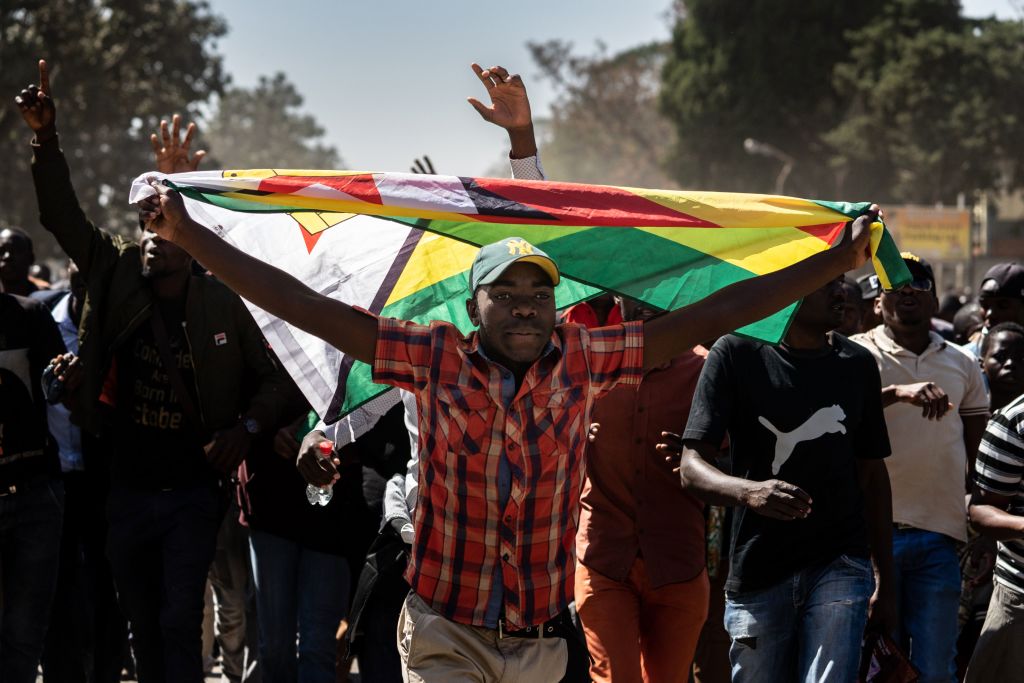
Imagine coming home and finding your entire house ransacked, your valuables stolen and your children tied to poles, their backs bleeding from being whipped with a sjambok. The sight rips your soul out and makes you want to find whoever did this to your loved ones and ensure they face justice.
You go and report the matter to the police and the greatest horror greets you. The ones manning the police station are putting on your stolen clothes and sipping tea out of your prized china. Rage fills you as you realize that it was they who violated you and your loved ones. Immediately you launch into a demand for your property, you call out their injustice and demand compensation. Then it happens without warning or shame. The whip cuts across your face and as you cover it in pain, the black boot of the senior cop smashes into your gut. You fall to the ground helpless, unable to scream out in pain or for help. The reality is that you have been robbed by those charged with protecting you — and now they will rob you of your voice too.
It’s August 2019, and there is no doubt about the unbearable magnitude of the economic hardships that ordinary Zimbabweans are facing: no electricity for 19 hours a day, crippling fuel shortages, the rising cost of living and runaway inflation. Basic commodity goods and services such as bread, water and public transport are no longer affordable to ordinary people. These endless struggles put even more pressure on Zimbabweans whose money was lifted directly from their bank accounts by the authorities and replaced with electronic money, which has now lost most of its value.
The attempt to protest against these painful hardships by ordinary people, who have suffered from years of political and economic misrule, has invited yet another season of police brutality. There are countless beatings of civilians, mass arbitrary detentions and more human rights violations.
The main opposition MDC Alliance recently called on all Zimbabweans to march peacefully and petition the government on the deteriorating economic situation. The first of those marches, slated for Aug. 16, was banned by the police — in clear violation of our constitution which guarantees us the right to protest peacefully and petition our government for whatever grievances we might have.
Despite the ban, Zimbabweans decided to exercise their constitutional right regardless – and were met with a display of disproportionate and excessive force by the police. The internet and newswires were awash with pictures and videos of citizens sitting on the ground being bludgeoned with batons and whipped by police officers. Women and the elderly were hit with blows to every part of the body from riot police.
Days before these scenes of brutality, civic society leaders were abducted, interrogated and tortured. Dumped and left for dead, the oozing welts all over their bodies, chemical burns and broken legs told a story of a ruthless regime determined to silence any criticism. This week, one of our best-known comedians, Samantha Kureya, went into hiding after being abducted from her home, beaten, stripped and made to drink sewage.
We have called for peaceful protests in the so-called “new dispensation” of President Emmerson Mnangagwa’s administration, and without fail they have all ended up in bloodshed, brutalized bodies, mass incarcerations and threats of death. There is no political will whatsoever in this government to allow Zimbabweans to exercise their basic freedoms, such as freedom of expression and peaceful assembly. Every avenue of protest has effectively been criminalised and once again just as Robert Mugabe did, there is an attempt to abduct, torture and criminalize dissenters.
This is why we march, organize boycotts and speak out continually for the right to protest injustice. We must never give that up for that would be to give up everything.
It is hard to describe the kind of soulless brutality that has and continues to take place in Zimbabwe. But the more powerful scene playing out in all of this, is that in the face of guns, baton sticks and tear gas, people still came out to march. Old, young. Men, women.
Besides the fact that those people were beaten, the undeniable truth is that they were not afraid to show that our hope is stronger than the authorities’ hate. They stood their ground and refused to let it ever be said that we did nothing. Some people, the fearful or the privileged, who have the luxury to tweet and sit out protests, want to claim that it is a waste of time.
What they don’t understand is that hope is not passive or apathetic. Instead it’s like a wave, though it subsides for a moment, it rises again and again. And with hope, we shall reclaim our freedoms one day.
More Must-Reads from TIME
- Cybersecurity Experts Are Sounding the Alarm on DOGE
- Meet the 2025 Women of the Year
- The Harsh Truth About Disability Inclusion
- Why Do More Young Adults Have Cancer?
- Colman Domingo Leads With Radical Love
- How to Get Better at Doing Things Alone
- Michelle Zauner Stares Down the Darkness
Contact us at letters@time.com